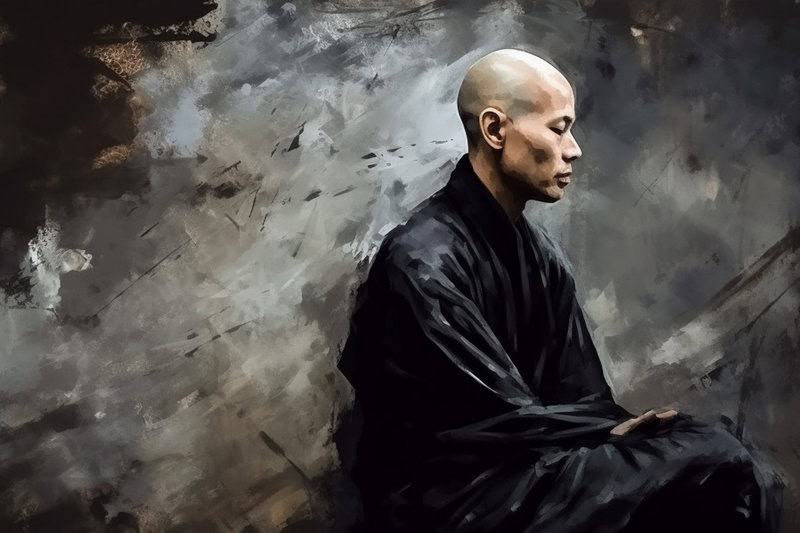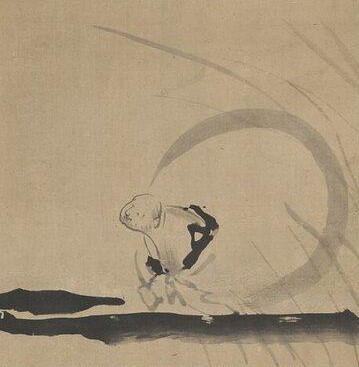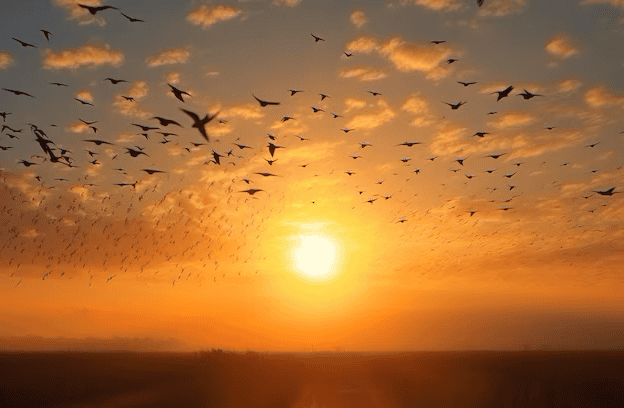After a particularly strong meditation experience this weekend, I was reflecting on one aspect of Zen and Tibetan Buddhism.
In meditation, my sense of all dharmas being Empty was clearer than is often the case. There was nothing I could latch onto, nothing that I could hold in my mind which didn’t melt away as soon as awareness illuminated it. Like butter on a hot knife, wherever I looked, its solidity melted away.

The ground was groundless
This particular meditation the sense of groundlessness was particularly pronounced. Not only couldn’t I hold onto anything and call it a ‘thing’, but the sense of there being nothing I could hold onto as a ground, as a sense of foundation, or stability, or platform from which to view or see was also really pronounced. There was no ‘me’, no ‘awareness’, no vantage point from which to have perspective, or identity. Nothing else. Period.
And yet, much of the time in life, there’s a confident sense of perspective, a sense of ‘knowing how things are’, of being somehow on top of things, or at least being able to work with things as they are. That life is ‘workable’, and that practice is ‘doable’. Yet all that has a subtle, or not so subtle sense of ground there, from which all can be accomplished.
This weekend the ground was missing!
No me, no nothing! Yet all things appear!
This led me to reflect on Zen and Tibetan Buddhism, as I mentioned above. It struck me that the notion of doubt was really central to Zen practice. Whatever arises, whatever we think we know, well, let it go, don’t grasp it, just let it go, and question further. Any answers we think we have, let them go in doubt, and go deeper. Any sense of identity, any sense of ground, let it go, in doubt.
This sense of doubt is really fundamental to Zen. Han Shan wrote:
A little doubt,– a little enlightenment.
A big doubt,– a big enlightenment.
Refraining from doubt,
— one doesn’t become enlightened.
Han Shan
The more doubt we bring to bear (i.e. the less we accept anything as it appears to be) then the more Enlightenment opens up for us.
Contrasting Zen with Tibetan Buddhism
And it struck me how contrasting this was in a sense from Kagyu practice. (only in a sense!!). Central here is Guru Devotion … the field of blessings of the lineage masters, which ripens and matures our minds, allowing Realisation to open out within its field of blessings.
Kagyu Dharma and Mahamudra emphasise at the level of relative truth this cultivation of Devotion, and of openness to blessings.
Why I said ‘only in a sense’ above, is that this devotion, and those that respond to this devotion, are not seen as ‘really existing’ … they are just the play of the mind, and ultimately empty. So in a sense, there’s big doubt here too …. coz nothing is latched onto, nothing is seen as more than images reflected in mind, in the way that images are reflected on water.
Big doubt opens up groundlessness
But the notion of doubt, of big doubt, seems a nice angle from which to open up the groundlessness of things, the lack of anything to hold onto … to have a sense of security as a result of.
No Refuge even, let alone egoistic sense of me.
All empty yet apparent ….. whatever arises, just let it go, coz you can’t grasp it as a means to security.
No Buddha, no God, no Reality, no Path, no Me, no Doubt, no Nothing!
Yet everything appears, in its place, like a dream, a magicians illusion, a bubble in a stream ….
How wonderous indeed this dance of appearances, simultaneously full and empty!




